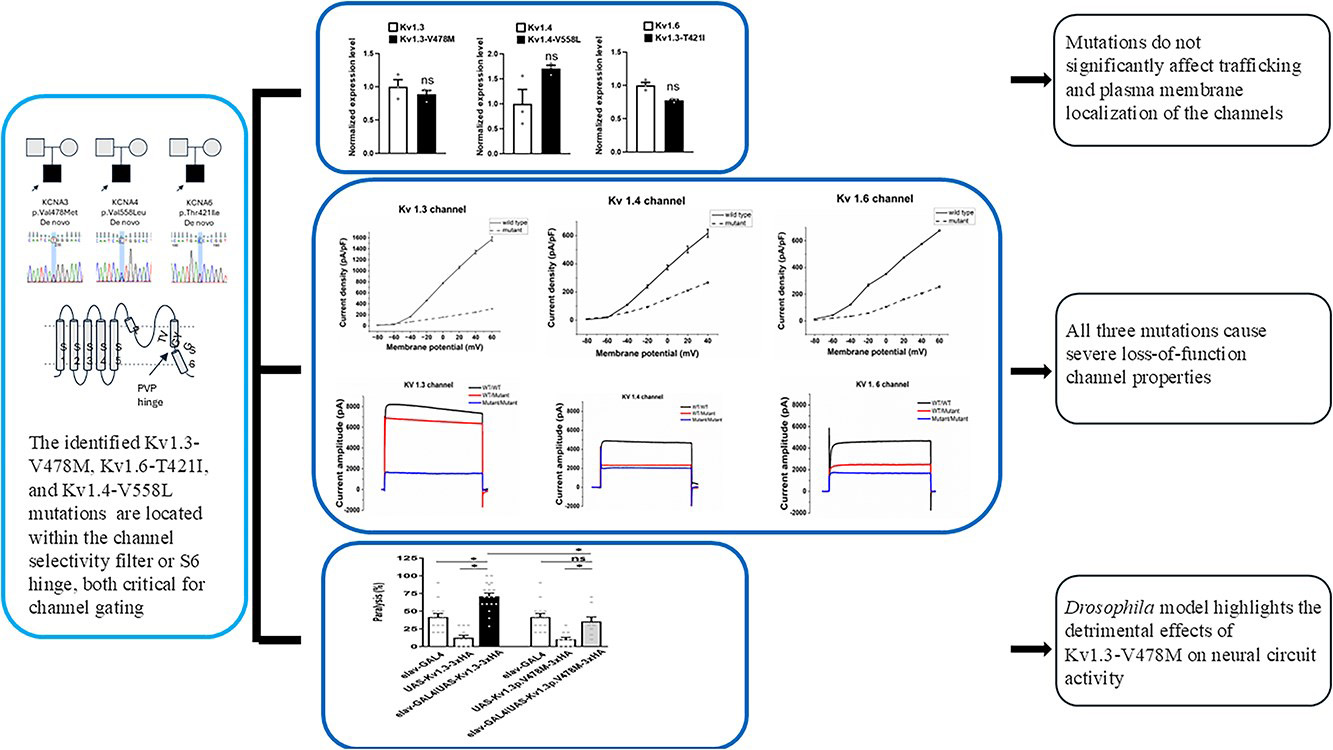
 中央研究院 生物化學研究所
中央研究院 生物化學研究所
Shaker-type potassium channel genes (Kv1) have been linked to human epilepsies, including KCNA1 (Kv1.1), KCNA2 (Kv1.2), and more recently, KCNA3 (Kv1.3) and KCNA6 (Kv1.6). In this study, we report three early-onset epilepsy cases with de novo missense mutations in Shaker-type channel genes, including Kv1.3, KCNA4 (Kv1.4), and Kv1.6, identified through whole exome sequencing trio study. The newly identified Kv1.3-V478M, Kv1.6-T421I, and Kv1.4-V558L mutations are located within the channel selectivity filter or S6 hinge, both critical for channel gating. These variants are in paralogous locations of previously reported pathogenic variant in KCNA2. These mutations do not significantly affect trafficking and plasma membrane localization of the Kv channels. In contrast, our patch-clamp analysis in a cell-based system reveals that all three mutations cause severe loss-of-function channel properties. Additionally, our Drosophila model highlights the detrimental effects of Kv1.3-V478M on neural circuit activity. Current findings suggest that, similar to Kv1.1, Kv1.2, and Kv1.3, both loss-of-function and gain-of-function mutations in Kv1.6 may contribute to the phenotypic variability in epilepsy severity. Our study also extends the list of potassium channel genes implicated in human epilepsy, introducing Kv1.4 as a novel epilepsy-related gene.
